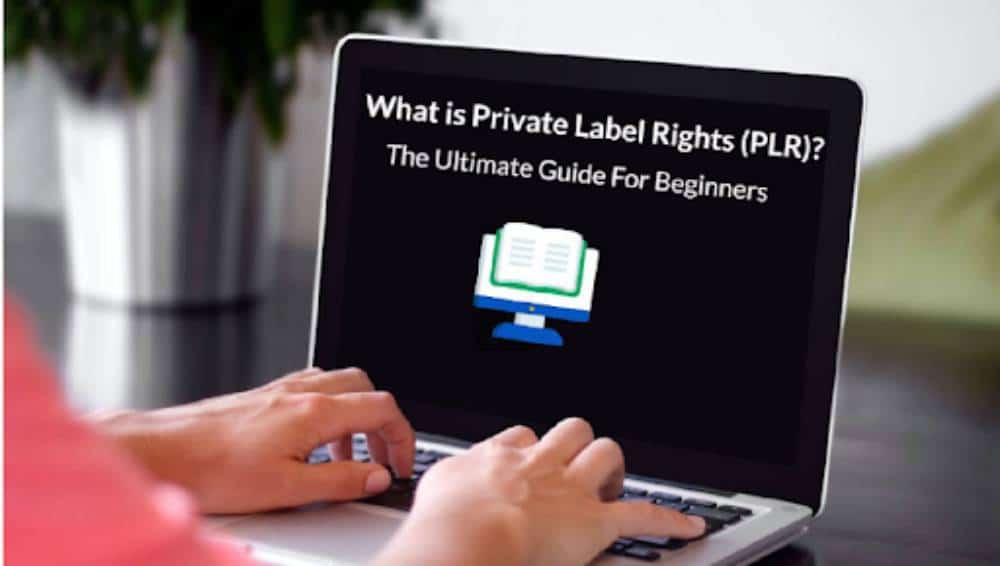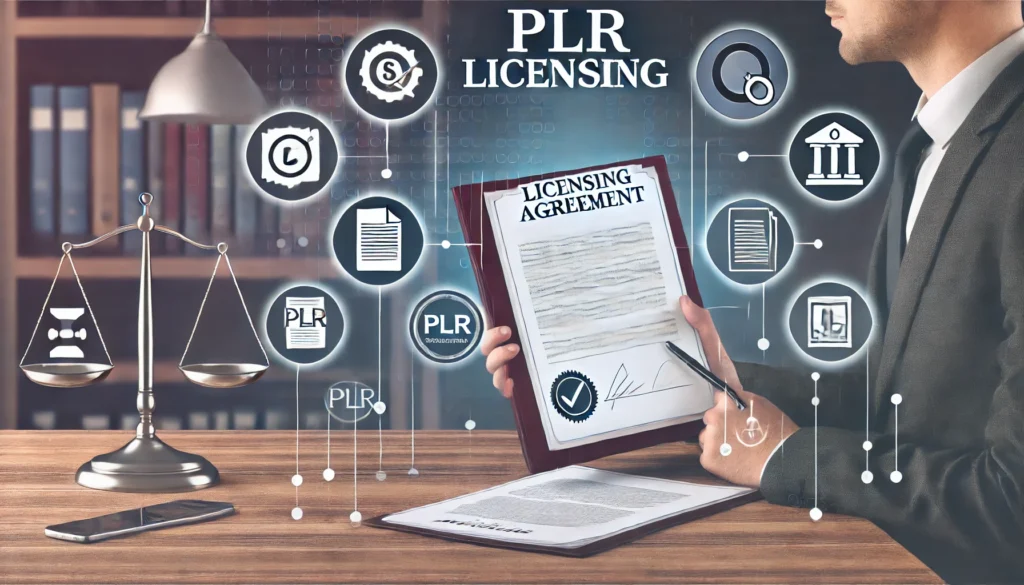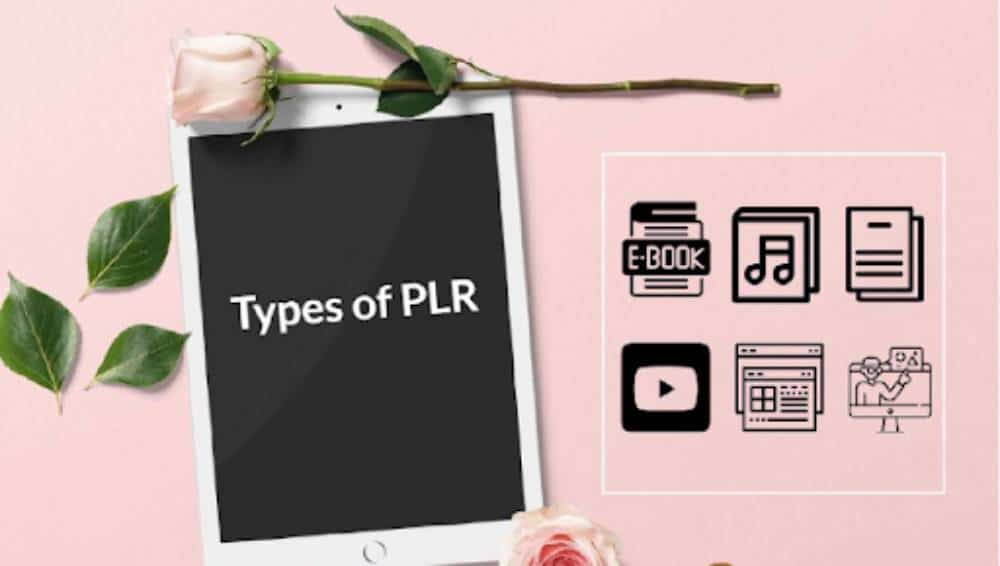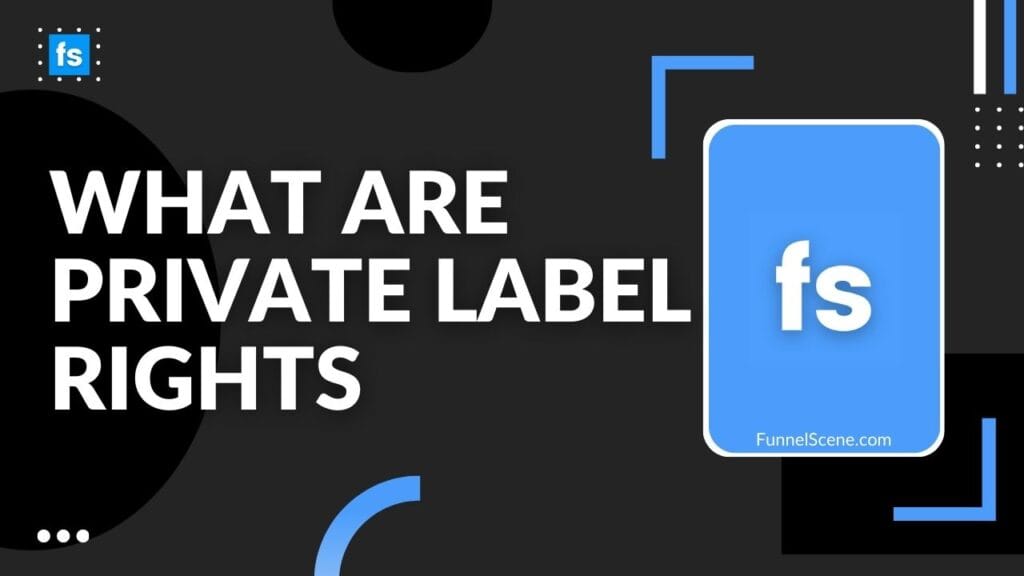Private Label Rights (PLR) content is a valuable resource for those looking to create digital products quickly and effectively. This guide will provide an overview of PLR, instructions on how to use it, and reasons why it can be beneficial for success in product creation.
If you want to learn more about using PLR, keep reading. We will explain what PLR is and how it works so you can start using it. We will also give you tips on how to make your work unique and stand out. Lastly, we will share resources to help you find quality PLR materials when needed.
This guide will provide you with the knowledge and tools needed to begin your journey into private label right, whether you are new to the concept or already familiar with it. Let’s begin.
What Is Private Label Rights?

Private label rights (PLR) are a form of content that is available for purchase and can be customized. This can include editing pre-written material or original digital products. PLR can be utilized in various ways, such as incorporating it into blog posts, developing eBooks, crafting email campaigns, or reselling the content. It provides an efficient option for individuals lacking in content creation skills to produce something distinctive without beginning from square one.
When you purchase content, you will receive a PLR license agreement. This document specifies the rights included in the sale and how you can use them. For example, some licenses include master resell rights allowing you to sell the product but not edit it. Other licenses may have restrictions on pricing or selling locations.
Now that we have defined PLR and discussed PLR licenses, let’s examine a practical example of a PLR license and its terms.
It is important to adhere to the guidelines outlined in the license agreement when utilizing content with private label rights. It is necessary to always comply with these rules.
It is essential to recognize the authors who have contributed to the content and provide appropriate credit when using PLR content. By following these guidelines, PLR can be a valuable resource for creating new content or maximizing existing materials.

Pros and Cons of PLR
One potential strategy for creating digital products is through the use of private label rights content, which can offer both advantages and disadvantages to consider.
One advantage of PLR is its cost-effectiveness compared to hiring a professional writer or graphic designer. Additionally, you have the flexibility to modify the content within the bounds of the license agreement.
Private label rights content offers a level of flexibility that allows individuals to use PLR products in various ways, such as integrating them into blog posts or creating eBooks from existing material.
Content can be sold on various online platforms, such as Etsy or WarriorPlus, to generate additional income.
A potential drawback of purchasing PLR is the possibility of increased competition among users who have access to identical content without any alterations.
Conducting research before making a purchase is essential to ensure the product fits your requirements and distinguishes itself from competitors.
Rebranding PLR content can help differentiate your material from others. When done correctly, purchasing PLR can be advantageous for those seeking to efficiently create original content without significant time or financial investment.
Understanding PLR Licensing

Understanding the licensing agreement that accompanies PLR content is crucial when purchasing or selling. Typically, downloaded PLR products include a license that specifies permissible usage and rights included.
There are seven main types of licenses, as follows:
Overview of the Different Types of PLR Licensing
- Private Label Rights: It is advised to review the license terms to identify any limitations on modifying, rebranding, or reselling the content.
- Unrestricted PLR: The licensing terms for PLR offer a variety of usage rights, with the quality of products under this license varying.
- PLR with Resell Rights: The product can be customized, rebranded, and sold as your own with a popular PLR license. Some licenses may restrict giving the content away for free.
- Resell PLR Rights: A PLR license option is available for those interested in selling private label rights licensing to others.
- Resell Rights: The product can be resold as is and can be included as a bonus in affiliate promotions.
- Master Resale Rights: These rights enable resale of both master resale rights and resale rights. In many cases, the product can be used to grow your email list.
- Personal Use Only Rights: The content is intended for educational use and is not available for commercial sale.
When purchasing a PLR product, it is important to carefully review the license terms to ensure it meets your needs and usage requirements.
When using PLR products, it is important to review the terms of the license, which can typically be found at the bottom of the product’s sales page. If you plan to give the product to subscribers of your email list, ensure that the license permits this use, such as “can be used to build your list.”
The Different Types of PLR Products

There is a wide range of private-label rights products available, including the most commonly found types of PLR content online.
- E-books: PLR e-books are widely sought after in the market, as they offer a variety of topics including self-help, business, and marketing.
- Articles: PLR articles are articles that are pre-written and cover a range of topics for use on websites or blogs.
- Videos: PLR videos encompass instructional videos, webinars, or other forms of video content that offer the ability to be customized with your branding.
- Audio files: PLR audio files encompass a variety of content such as podcasts, music tracks, and sound effects that can be utilized in personal projects.
- Software: PLR software may consist of various digital tools, such as plugins and apps, that are editable and available for resale.
- Graphics: PLR graphics encompass a variety of visual elements, including images, icons, logos, and other assets that buyers can utilize for their website or branding purposes.
Templates: PLR templates encompass a variety of pre-designed templates, such as website templates and sales page templates, that can be customized and utilized by the purchaser.
Social media posts: PLR social media posts provide pre-written content for platforms such as Facebook, Twitter, and Instagram for buyers to use in their social media marketing.
Email sequences: PLR emails are pre-written sets of emails that can be purchased, edited, and utilized in email marketing campaigns.
Courses: PLR courses are pre-made online courses available for purchase, editing, and resale.
Worksheets and printables: PLR worksheets and printables may contain ready-made templates for items such as checklists, workbooks, and planners.
Photography: PLR photography includes stock photos available for purchase and legal use in marketing projects.
Tutorials: PLR tutorials may consist of detailed instructions on various subjects that are customizable and available for resale.
Audio and video scripts: PLR audio and video scripts provide pre-written content for podcasts, webinars, and video courses that can be customized to your needs.
Infographics: PLR infographics are pre-designed graphics displaying information or data that can be utilized for marketing or content creation.
PLR products offer a variety of use cases and can provide valuable assistance to marketers and businesses seeking to streamline con tent creation efforts.
How Do You Use PLR Content?
Utilizing private label rights content can be a cost-effective and efficient method for developing products for your business. By obtaining the appropriate licenses, you have the flexibility to use PLR materials as they are, adapt them for different purposes, or create entirely new information products or coaching courses.
The possibilities for utilizing PLR products and content are expansive and are only constrained by creativity. Explore creative avenues to fully leverage the potential of your PLR content.

Some Ways You Can Use PLR Content:
- Blog Posts: PLR articles can be utilized for inspiration for blog posts or adapted to fit specific requirements.
- Email newsletters: One option is to repurpose PLR content for an email newsletter that can be sent to subscribers.
- Social Media Posts: PLR content can be utilized for social media posts on various channels, but it is important to tailor it to align with your brand.
- E-books: Compiling multiple PLR articles into an e-book or guide allows for customization with your own voice and examples to create a unique product.
- Lead Magnets: Utilize PLR content to create a lead magnet, such as offering a free e-book, guide, or checklist to website visitors in return for their email addresses.
- Courses: PLR content can be utilized as a foundation for developing your own online course by incorporating personal insights, examples, and exercises to enhance its originality.
- Videos: PLR content can be utilized for developing a video script for tutorials or informational videos.
Ways To Make Your PLR Stand Out from The Crowd
When purchasing PLR content, the aim is to differentiate it from others and make your product or service appear distinct. There are several strategies to achieve this goal.
Rebranding PLR content is a method used to set yourself apart from competitors who may resell it without changes. Customizing and editing PLR materials to suit your target audience is a fundamental strategy for effective PLR marketing.
Investing in high-quality PLR content can help you stand out from the crowd and avoid providing customers with recycled material. By conducting research, editing, and incorporating your own ideas, you can easily customize products and services to align with your business’s unique offerings.

Where Can I Find High Quality Private Label Rights Content?
When looking for digital products with resale or private labeling rights, it’s important to shop around. These resources can give your business a unique edge in the industry. Websites like BuyQualityPLR.com offer thousands of quality PLR products. Before buying, research different options to find the best fit. Choose sellers with good reputations and high customer ratings to ensure the product’s quality and reliability.
When buying products related to rights, be aware of any restrictions that may be in place. Sellers may limit how you can use their materials, such as not allowing selling or altering them. Make sure these restrictions match your intended use. Also, consider any extra costs like web hosting fees or setup costs that may add up if not managed properly.
It is advisable to thoroughly review and comprehend the license agreements prior to buying PLR content. This will mitigate any possible complications in the future and guarantee a satisfactory return on your investment.

Tips for Making the Most Out of Your PLR
After purchasing high-quality PLR content from a PLR shop, it is important to maximize your investment. Utilize PLR products to increase traffic, generate passive income, and gain a competitive advantage for your business by implementing effective strategies.
One effective way to make the most of your PLR content is by utilizing social media platforms. By using snippets from articles or blog posts as tweets or Facebook status updates, you can increase visibility and engagement. Having a strong social media presence is crucial in today’s digital landscape. Another strategy is to create a lead magnet using your PLR material, such as an eBook or webinar series, to attract potential customers and encourage them to join your mailing list for future updates.
Monetizing your content is important. Private label rights materials can help you create multiple income streams without much effort. This allows you to generate passive income in the long term. When utilized effectively, private label rights products can lead to countless opportunities for success.
Conclusion
Utilizing PLR content can offer a cost-effective and time-saving solution for content creation. Consider the price and delivery time before deciding to use PLR content.
It is important to understand the legal implications of using PLR content, including whether it can be used for business purposes and any restrictions on editing or repurposing the content.
Consider exploring private label rights (PLR) as an efficient option for generating top-notch content in a timely manner, without the need for extensive research and writing.
By implementing these precautions and conducting thorough research, you can confidently utilize PLR content. This will aid in saving time and money, all while maintaining the standard of the end product. Your feedback on PLR is welcomed; please share your thoughts in the comments section.
Frequently Asked Questions
What are private label rights?
“Private Label Rights (PLR) are a licensing option that enables you to customize and rebrand a product as your own. This includes adding your own branding and content to an existing product such as an ebook, printable, or video. With PLR, you have the ability to sell the product as your own and retain all earnings.”
Where can I find PLR products?
There are numerous websites and online platforms that provide PLR products like eBooks, articles, videos, and software. Popular sites for PLR products include PLR.me, Buy Quality PLR, and Piggy Makes Bank. You can find additional PLR suppliers in our PLR directory. Prior to purchasing a PLR product, make sure to select a trustworthy site and thoroughly review the license terms.
Will Google penalize my website for duplicate content if I use PLR?
Google has stated that duplicate content is not penalized, but they may filter out some duplicate content from search results.
Using Private Label Rights (PLR) content on your website is acceptable, as Google does not penalize for it. However, it is important to ensure that the PLR content you choose is of high quality and relevant to your website visitors.
It is recommended to modify PLR content to ensure uniqueness and add value to it in order to avoid potential duplicate content issues. This could involve incorporating personal insights, updating the content to align with current trends or developments, or integrating multiple PLR products to create a new and distinctive product. The primary concern with duplicate content in relation to Google is that non-original content is unlikely to rank on the search engine.
One way to improve your website’s search engine rankings and provide valuable content to your audience is by modifying PLR content and incorporating your own original insights.
Are PLR products high quality?
When purchasing PLR products, it is important to consider the quality and relevance of the content. Researching and reading reviews can help you identify high-quality products that meet your standards.
Can I sell PLR products as my own?
With a PLR license, you are granted permission to modify and rebrand the product for resale under your own brand. It is essential to adhere to the license terms and avoid any infringements of copyright or trademark laws.
Can I give away PLR products for free?
The terms of the PLR license dictate whether or not you are allowed to give away the product for free. It is essential to review the license terms closely before proceeding with any distribution.
How can I use PLR products?
PLR products can be utilized in various ways, such as selling them as original content, using them as lead magnets for email list growth, or incorporating them into website and social media content. The potential uses for PLR products are vast, and it is important to explore different strategies to help achieve business objectives.
What’s the Difference Between PLR and Master Resell Rights
Private Label Rights (PLR) and Master Resell Rights (MRR) are different types of licenses that grant permission to use and distribute existing products like eBooks or software.
- MRR restricts the ability to alter the product and market it as your own, while PLR allows for customization and rebranding before selling it as your own.
- PLR offers greater flexibility compared to MRR. With PLR, the product can be used for personal use, resold, or given away for free. In contrast, MRR usually only allows for selling the product and retaining the profits.
- PLR typically has a higher price point.

